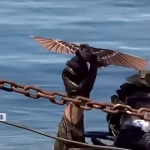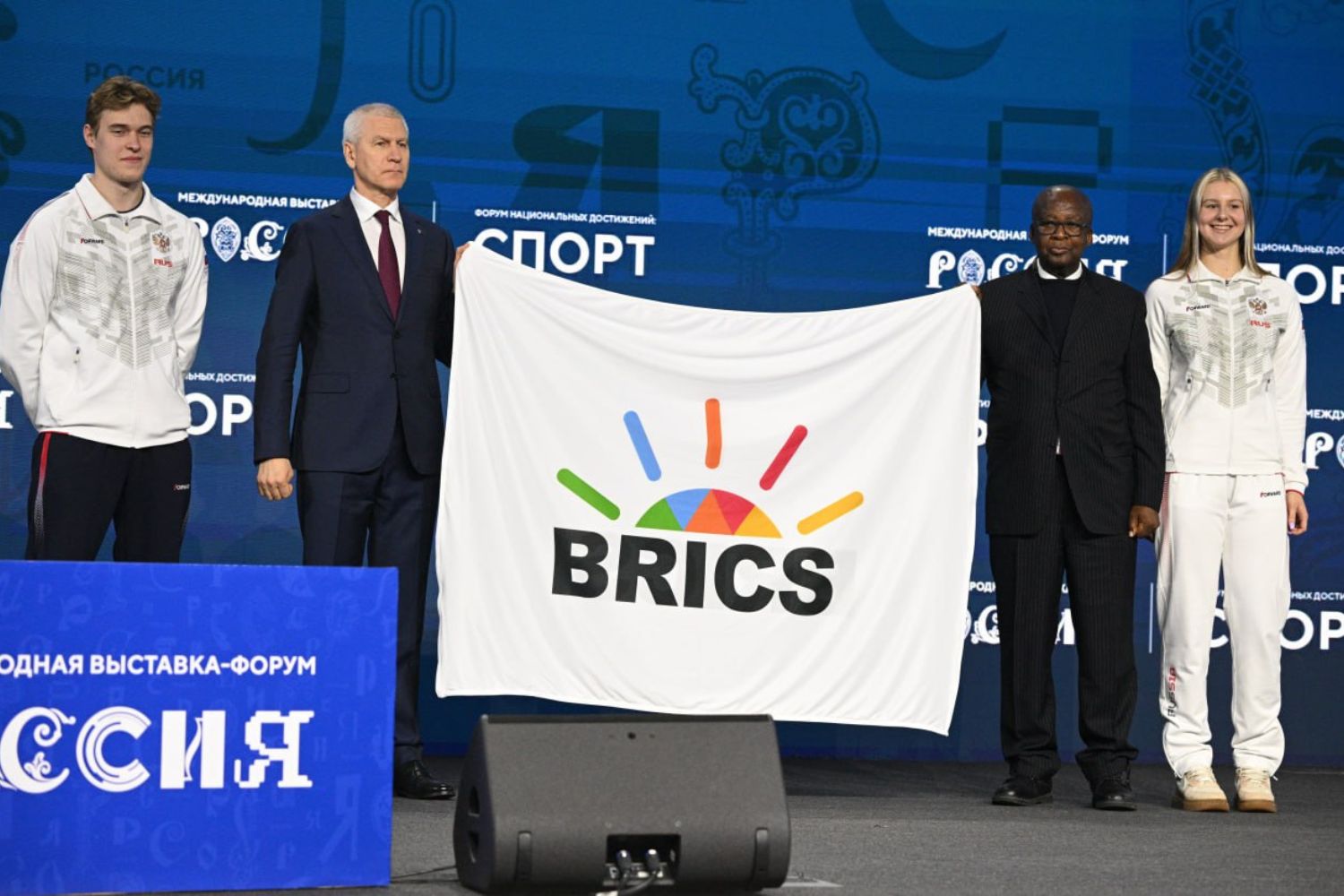The Moscow International Film Week, scheduled for August 23 to 28, 2024, is poised to be one of the largest cultural gatherings of the year. With representatives from over 40 countries—including China, Iran, and Egypt—participating, the event promises a rich showcase of global cinema and cultural exchange.
A Cinematic Extravaganza
The festival will feature more than 300 films screened across approximately 100 venues throughout Moscow. These venues include cinemas, parks, museums, and hotels, turning the city into a vibrant hub of film culture. Among the standout films are the Chinese titles “Born To Fly,” “I Remember,” and “One and Only,” the Iranian drama “The Salesman,” and the Indian melodrama “Aatmapamphlet.”
Beyond the Screenings
In addition to film screenings, the festival offers a wide range of cultural activities. Attendees can enjoy concerts, master classes, thematic games, and meet-and-greets with actors and directors. There will also be tours of Moscow’s film studios and iconic film locations, providing a deeper connection to the city’s cinematic history.
Fostering Industry Collaboration
The festival’s business program will bring together representatives from Russian and international film companies to discuss collaboration opportunities and explore filming prospects in Moscow. This aspect of the event aims to strengthen ties within the global film industry and highlight Moscow as a key player in international cinema.
Moscow Industrial Media Forum
From August 26 to 28, the Moscow Industrial Media Forum will take place as part of the festival. This forum will host industry conferences and an exhibition of the latest film and media technologies, offering insights into the future of the industry and fostering professional networking.
A Platform for Cultural Exchange
The Moscow International Film Week is not just a celebration of cinema but also an opportunity to enhance cultural exchange and cooperation. By bringing together filmmakers, industry professionals, and audiences from around the world, the event underscores the importance of cultural dialogue and collaboration in the arts.
Russian cinema has a rich and complex history, marked by groundbreaking innovation, artistic achievement, and significant political influence. Here’s a brief overview of its evolution:
Early Beginnings and Silent Era (1890s-1920s)
- Inception: Russian cinema began in the late 19th century, with the first public film screenings taking place in 1896. The early years were dominated by newsreels and short films.
- Growth of Silent Cinema: By the 1910s, Russia had a thriving film industry, producing silent films that ranged from melodramas to literary adaptations. Directors like Evgeni Bauer became known for their sophisticated use of lighting and set design.
Soviet Cinema and the Revolution (1920s-1930s)
- Post-Revolution Influence: After the Bolshevik Revolution in 1917, cinema was recognized by the Soviet government as a powerful tool for propaganda. The state took control of the industry, and films were used to promote communist ideology.
- Montage and Innovation: The 1920s saw the emergence of the Soviet montage school, led by directors like Sergei Eisenstein, Dziga Vertov, and Vsevolod Pudovkin. Eisenstein’s “Battleship Potemkin” (1925) became one of the most influential films of all time, celebrated for its innovative use of montage editing to create powerful emotional effects.
- Documentary Films: Dziga Vertov’s work, particularly “Man with a Movie Camera” (1929), was groundbreaking in the documentary genre, showcasing everyday Soviet life with experimental techniques.
Socialist Realism and Stalin Era (1930s-1950s)
- State Control: During the Stalin era, cinema was tightly controlled by the state, with Socialist Realism becoming the mandated style. Films were expected to portray Soviet life in a positive light and glorify the state, the working class, and the Communist Party.
- Iconic Films: Despite the restrictions, this era produced some classics, including Grigori Aleksandrov’s musicals like “Volga-Volga” (1938) and Mikhail Kalatozov’s war drama “The Cranes Are Flying” (1957), which won the Palme d’Or at the Cannes Film Festival.
Thaw and New Wave (1950s-1970s)
- The Khrushchev Thaw: The period following Stalin’s death, known as the Khrushchev Thaw, brought a relative relaxation of censorship. Filmmakers explored more diverse themes and experimented with styles.
- Russian New Wave: Directors like Andrei Tarkovsky, with films such as “Ivan’s Childhood” (1962) and “Andrei Rublev” (1966), brought Russian cinema to new artistic heights. Tarkovsky’s films are known for their philosophical depth, spiritual themes, and innovative use of long takes and slow pacing.
- Social Realism with a Twist: Directors like Sergei Parajanov (“Shadows of Forgotten Ancestors,” 1965) and Elem Klimov (“Come and See,” 1985) also pushed boundaries, blending social realism with more avant-garde techniques.
Stagnation and Perestroika (1970s-1980s)
- Stagnation: The Brezhnev era saw a return to more conservative filmmaking, with many films focusing on safe, patriotic themes. However, some directors continued to produce critically acclaimed works that subtly critiqued Soviet society.
- Perestroika: The 1980s brought significant changes under Mikhail Gorbachev’s policies of glasnost (openness) and perestroika (restructuring). Filmmakers gained more freedom to explore previously taboo subjects, leading to a resurgence in bold and innovative filmmaking.
Post-Soviet Russian Cinema (1990s-Present)
- Transition and Crisis: The collapse of the Soviet Union in 1991 led to a period of chaos in the Russian film industry, with many studios closing and funding drying up. However, this era also saw the emergence of new voices and themes reflecting the complexities of post-Soviet life.
- International Recognition: Directors like Aleksei Balabanov (“Brother,” 1997), Andrey Zvyagintsev (“Leviathan,” 2014), and Alexander Sokurov (“Russian Ark,” 2002) have gained international acclaim, with their films often exploring the social and moral dilemmas of contemporary Russia.
- Government Influence: In recent years, the Russian government has increased its influence over the film industry, promoting patriotic themes and limiting works that critique the state. Despite this, Russian cinema continues to produce a diverse range of films, from mainstream blockbusters to arthouse films that gain recognition at international festivals.
Current Trends
- Cultural Revival: There has been a resurgence of interest in historical epics, reflecting a broader trend in Russia to reclaim and reinterpret its past. Films like “Stalingrad” (2013) and “The Legend of Kolovrat” (2017) are examples of this trend.
- Global Collaboration: Russian filmmakers are increasingly collaborating with international studios, expanding their reach and influence beyond national borders.
- Arthouse Success: Directors like Kantemir Balagov (“Beanpole,” 2019) and Kirill Serebrennikov (“The Student,” 2016) continue to receive critical acclaim for their work, often highlighting the tensions and contradictions within Russian society.
Russian cinema remains a vital and dynamic part of the global film landscape, continuing to reflect and influence the country’s cultural and political life.














Can you be more specific about the content of your article? After reading it, I still have some doubts. Hope you can help me.